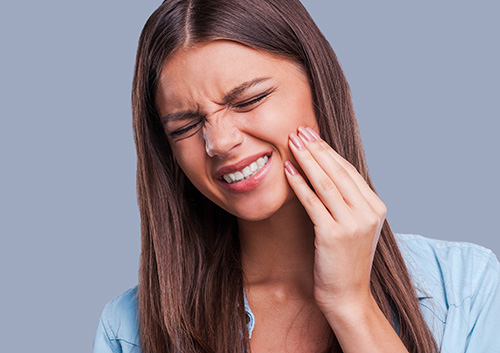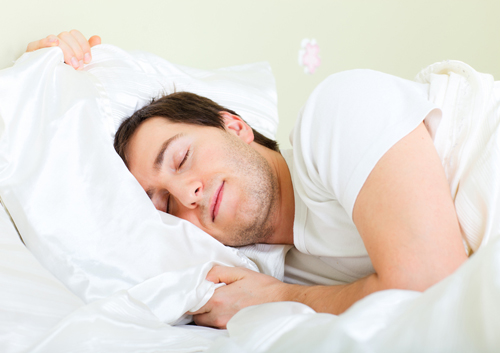August 19th, 2021

You just crunched down on a piece of hard food when you suddenly realize there is something hard still in your mouth. Your nightmare is confirmed when you retrieve a piece of your tooth from your mouth. You chipped your tooth; now what?
Obviously, the first thing you need to do is call our Marrero office. While we make every effort to see emergent cases immediately, you may have to wait a day or so before you can see Dr. Keith J. Fabre Jr.. Luckily, it’s easy to take care of your chipped tooth while you wait.
How to Take Care of a Chipped
The last thing you want is for the tooth to become infected or break even more. Let’s look at a few things you can do:
- If the chipped tooth is causing you pain take an over-the-counter pain medication, like Tylenol. Always follow the directions on the label.
- You should also rinse your mouth with lukewarm saltwater, as this will help prevent an infection from setting in.
- If your chipped tooth has a sharp edge, cover it up with a piece of wax to prevent it from cutting you cheek, tongue, or lip.
- If you have to eat, make sure you eat soft foods and don’t bite down on the chipped or broken tooth.
Treatment Options for a Chipped Tooth
- Dental Filling and Bonding – If you only have a small chip in your tooth, Dr. Keith J. Fabre Jr. will probably fix it with a filling. If it is a front tooth, we may bond the tooth using a tooth-colored compound.
- Dental Crown or Cap – If you broke a large piece of your tooth, we may grind the remaining part of your tooth and put a crown or cap on it.
- Dental Veneers – If you chipped or broke your front tooth then choosing a dental veneer may be your best choice. It will make your tooth look completely normal.
- Root Canal – If you cracked your tooth and the center (pulp) of the tooth is exposed and infected, you will need a root canal. If the center of your tooth is exposed, it becomes vulnerable to bacteria that will cause your tooth to abscess.
Chipping or breaking your tooth is never a good thing, and you should always call our Marrero office right away. The sooner you get your tooth repaired the less likely you are to have any problems with it.
August 12th, 2021

Sleep apnea is an increasingly common medical condition, and one that can have a truly devastating effect on the waking life of the sufferer. Those who suffer from the disorder may find that they suffer any or all of the following side effects:
- Saliva has several important jobs, and one of them is to protect and heal your tongue, your gums, and the inside of your mouth. Snoring and sleep apnea dry out your mouth, meaning there isn’t enough time for your saliva to do all this vital work.
- Over an extended period of sleep apnea, it’s likely that the sockets of your teeth will begin to dry out overnight as a result of your gasping for air and snoring between breaths. If this happens too frequently over a long a period of time, it can start to loosen your teeth.
- Those with sleep apnea often also practice bruxism, which is the habit of clenching and grinding your teeth together as you sleep. This can lead to all manner of problems, including TMJ disorder, damage to the enamel, headaches, and toothaches.
- For obvious reasons, sleep apnea does not lead to a particularly good night’s sleep. This means that sufferers are often tired and irritable, and suffer from the many other ill effects of sleep deprivation.
- While it is unclear whether the reasons behind this are correlative or causative, it has been suggested there are links between sleep apnea and cardiac arrests, depressive disorders, Type Two diabetes, cancerous tumors, “silent” strokes, and various complications of pregnancy.
While sleep apnea can be a troubling condition, Dr. Keith J. Fabre Jr. and our team at Fabre Family Dental Care of Marrero will tell you it is eminently treatable. There are a number of ways to combat it, ranging from simple sleep hygiene to use of a CPAP machine. Of course, if it is possible for you to reduce your weight a little in a safe and healthy way, some have found that is also helpful in combating the problem. Sleep apnea is very easy to treat, once it has been correctly identified.
If you think you may be suffering from sleep apnea, or if you would like to know more about the condition, please give us a call at our convenient Marrero office to schedule an appointment with Dr. Keith J. Fabre Jr..
August 5th, 2021

Pregnancy can be one of the most exciting times in a woman’s life, as you eagerly wait for the birth of the new addition. Needless to say, pregnancy comes with a lot of responsibilities. Everything you do to your own body can affect your baby’s health, so you eat right and try to avoid anything that could harm your baby.
You may not realize it, but even your oral health affects your baby. You have a lot to worry about during this time in your life, but it’s important not to let your oral health slide. Maintaining good routines before and during pregnancy can improve the health of your baby.
Gum Disease and Pregnancy
Gum disease includes gingivitis and the more severe condition called periodontitis. Pregnancy gingivitis is a condition that results from bacteria in your teeth. Symptoms include gum inflammation and bad breath. If it progresses to periodontitis, your baby is at higher risk for preterm delivery and low-birth weight. You can also develop pregnancy tumors, or pyogenic granulomas, which can interfere with speaking and eating. Throughout pregnancy, continue to visit Dr. Keith J. Fabre Jr. at your regularly scheduled appointments to look for signs of gum disease.
Pregnancy and the Role of Our Office
Make an appointment with Dr. Keith J. Fabre Jr. at our Marrero office when you first learn that you’re pregnant, especially if you have unresolved oral health issues. If possible, try not to schedule necessary treatment during the first trimester or second half of the third trimester.
Oral Health Care Habits to Follow
Maintain a normal good oral health care regimen, which includes brushing your teeth at least twice daily with a fluoride toothpaste and soft toothbrush, and flossing daily. If your regular regimen is not up to par, now is a good time to develop good habits. You can use an unflavored toothpaste if you have morning sickness and regular toothpaste makes you feel nauseous. Also, rinse your mouth with water or mouthwash if you experience morning sickness to prevent acid damage to your teeth.
July 29th, 2021

Depending on how long the thumb sucking or constant pacifier use continues, and how aggressively the child sucks a thumb or the pacifier, it can indeed be an oral health issue. Generally speaking, most children outgrow these behaviors or are able to be weaned off them successfully sometime between ages two and four. When children wean off the behaviors in this age range, long-term damage is unlikely.
Why Kids Suck Their Thumb or Pacifier
Both of these habits are actually a form of self soothing that your child likely uses when he or she is very upset, or feeling stressed, confused, frustrated, or unable to properly express the emotions. If your son or daughters is a regular thumb sucker, or the child wants to use the pacifier almost constantly, it is best to try to taper off these habits at a young age.
If your child continues to suck a thumb or request a pacifier consistently after leaving toddler-hood, this could be a source of concern, and it should be addressed with Dr. Keith J. Fabre Jr. and our staff. We will be able to evaluate your child's mouth to look for any signs of damage such as palate changes or teeth shifting.
Say Goodbye to Old Habits
In the event that your child is quite reluctant to give up a pacifier or thumb-sucking habit, there are a few things you can do to discourage these behaviors.
- When you notice that your child is not using a pacifier or sucking a thumb, offer effusive praise. This type of positive reinforcement can be much more effective than scolding the child.
- Consider instituting a reward system for giving up the habit. If the child goes a certain amount of time without this behavior, award him or her for being such a “big kid.”
- Employ the help of older siblings or relatives that your child admires. When a child’s role model says that he or she stopped sucking thumbs at a certain age, your child is likely to try to emulate that.




